We all try as best we can to cope with the Coronavirus in these very stressful times, but a crisis like this can often make people feel helpless or frightened, it’s only natural. However studies show that when people are prepared ahead of time and have a plan of action, although it’s still a stressful time that feeling of vulnerability can be lessened dramatically.
Below you’ll find an outline from the CDC for your own COVID-19 plan of action, so that you and your loved ones can be prepared to better cope with the stress during the virus outbreak:
- Plan and make decisions before an illness strikes so that when the stress of that moment is not made worse by not knowing what your next step will be, should it occur. Instead your actions will be calm and decisive and will enable you to act quickly. This would include knowing which hospital you would go to for assistance.
- Locate a Coronavirus testing site nearest to you. You can go to UrgentCare.com’s national registry to find the closest COVID-19 drive-through testing site in your area, or if you should have a non- emergency medical problem you need assistance for.
- If you have children in your household, know in advance how you need to protect and support them during the outbreak. The CDC has a detailed web page for how you can be prepared when caring for children during the Coronavirus go to https://www.cdc.gov/coronavirus/2019-ncov/daily-life-coping/children.html.
- While following the social distancing guidelines for your area it’s important to have ways for you and your children to relieve stress. The best way to do this is by finding activities in the home that you and your family enjoy doing together, if you’re able to go outside do so very carefully and make certain to follow the CDC state/local guidelines for your area.
Have a Household Checklist
Stay In Touch With Others and Be Informed:
- Have a list of your state and local emergency responders and organizations in case you should have an emergency and need assistance.
- Stay informed daily with up-to-date reliable information from public health officials.
- Have an emergency contact list that includes phone numbers/email for family, friends, neighbors, transportation drivers, teachers, employers and local emergency agencies and your local public health department.
- Ask family and friends what their plan includes and share yours with them.
Be Prepared Ahead of Time For Contracting The Coronavirus:
- Know who is at most risk for severe illness from the Coronavirus, Understanding who is most vulnerable will help guide you in what steps you’ll need to take to protect these members of your family are at greater risk from the virus, which include; older adults, and/or people with pre-existing chronic health conditions that make them more vulnerable to serious illness or death from COVID-19. Preliminary results from the Coronavirus fatality statistics indicate that people of any age with the following pre-existing conditions include people with chronic conditions such as; obesity, heart disease, diabetes, high blood pressure, immunosuppressed, kidney or liver diseases.
- Select a room in your house where you can isolate anyone, that becomes sick or has symptoms of the virus, from the other people in the household.
Follow CDC Prevention Guidelines:
- Properly wash your hands with soap and water frequently (and dry thoroughly).
- Avoid touching your face, eyes, nose, and mouth.
- If you are sick, self isolate and do not go out of your home.
- Cover your cough or sneeze with a kleenex or tissue and dispose of it immediately.
- Keep frequently touched common areas and items clean, wipe down often with an antibacterial disinfectant.
- Stay home as much as possible, only go out in public if it’s necessary.
- Wear a cloth face covering (and gloves if possible) if you must go out in a public place where you can’t maintain social distancing.
Know And Watch For The Symptoms Of The Coronavirus:
- Contact a healthcare provider, your doctor, an UrgentCare.com center, or your local health department if you develop any of the persistent warning signs of COVID-19. The COVID-19 warning signs include; fever, cough, shortness of breath.
- Contact an Emergency health care provider immediately if you develop any of the emergency warning signs include; trouble breathing, persistent chest pain or pressure, (new) confusion or inability to arouse, bluish lips or face.
*There are other symptoms of COVID-19 you should contact a healthcare provider if you have symptoms that are concerning or severe.
If You Or Someone In Your Household Is Sick:
- Self isolate or keep the ill person in a separate room away from others in the household.
- Continue to practice social distancing and spread prevention practices both inside and outside the home if you are caring for someone who is sick. Follow all recommended precautions and closely monitor your own health for signs of the virus.
- Keep common household surfaces and items disinfected by cleaning/wiping down with a disinfectant frequently.
- Do not share personal items among each other in the household.
- Stay in touch with a family member, friend or your healthcare provider if you become sick and/or are alone.
- Keep others updated as to the sick person’s progress to reduce stress and limit contact with others and the sick person, eliminate any unnecessary visits from friends or family members.
- Take care of the emotional health of the sick person, yourself and household members.
- Notify your employer if your work schedule needs to be altered.
- Stay up-to-date on your local areas outbreak status so you will know if any extra precautions are called for.
Recommended Precautions You Should Take If You Or You Have Someone Who Is At Higher Risk For COVID-19 Living In Your Household:
- Consider self isolating/staying at home, staying away from any crowded public places such as grocery stores and pharmacies or other social situations where you cannot maintain 6 feet of distance (at least) from others.
- Minimize exposure to others in general, CDC experts believe that there is a significant amount of people in the population who may have the virus, but do not have any symptoms and pass the virus on to you unknowingly.
- Make sure you have several weeks of your medications and adequate stores of supplies, food, and water in case you should become ill and need to stay home.
- Wear a cloth mask that covers your nose and mouth (and wear gloves when possible) if you go into a public place.
- Frequently wash your hands with soap and water and dry them thoroughly.
- Wipe down common household items and surfaces frequently with a disinfectant.
- Do not share personal items with others
- Do not pet or handle other people’s animals and don’t let anyone pet yours. Refrain from kissing your own pets at this time and wash your hands thoroughly after petting your cat or dog.
- Maintain good personal hygiene on a regular basis; bathe, shower, brush your teeth, and change/wear clean clothes daily.
Guidance On Children:
- If your child or a child you’re caring for becomes sick with Coronavirus notify the child’s school.
- Stay up-to-date on school and daycare closures in your area.
- Discourage/don’t allow your children and teens from gathering/playing in groups or gathering in public places. Insist children follow social-distancing guidelines and any CDC and/or state/local mandates for your area.



